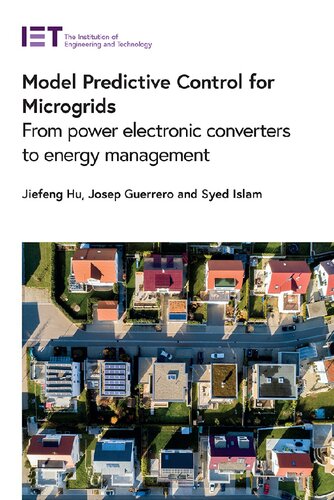

Most ebook files are in PDF format, so you can easily read them using various software such as Foxit Reader or directly on the Google Chrome browser.
Some ebook files are released by publishers in other formats such as .awz, .mobi, .epub, .fb2, etc. You may need to install specific software to read these formats on mobile/PC, such as Calibre.
Please read the tutorial at this link: https://ebookbell.com/faq
We offer FREE conversion to the popular formats you request; however, this may take some time. Therefore, right after payment, please email us, and we will try to provide the service as quickly as possible.
For some exceptional file formats or broken links (if any), please refrain from opening any disputes. Instead, email us first, and we will try to assist within a maximum of 6 hours.
EbookBell Team

4.4
92 reviewsMicrogrids have emerged as a promising solution for accommodating the integration of renewable energy resources. But the intermittency of renewable generation is posing challenges such as voltage/frequency fluctuations, and grid stability issues in grid-connected modes. Model predictive control (MPC) is a method for controlling a process while satisfying a set of constraints. It has been in use for chemical plants and in oil refineries since the 1980s, but in recent years has been deployed for power systems and electronics as well.
This concise work for researchers, engineers and graduate students focuses on the use of MPC for distributed renewable power generation in microgrids. Fluctuating outputs from renewable energy sources and variable load demands are covered, as are control design concepts. The authors provide examples and case studies to validate the theory with both simulation and experimental results and review the shortcomings and future developments.
Chapters treat power electronic converters and control; modelling and hierarchical control of microgrids; use of MPC for PV and wind power; voltage support; parallel PV-ESS microgrids; secondary restoration capability; and tertiary power flow optimization.